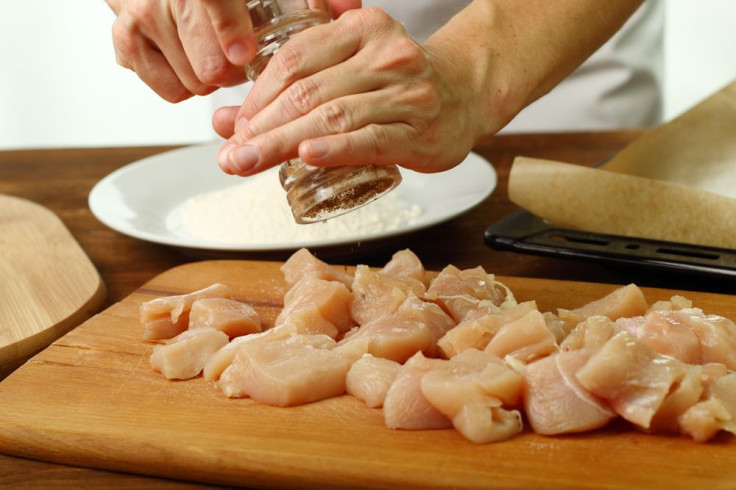Disinfecting Wipes Destroy Bacteria, Reduce Food Poisoning Risk By 99%

Though most people like to eat chicken, the meat contains bacteria and so can be a danger when prepared and cooked at home. In fact, Campylobacter jejuni, a leading cause of diarrheal illness, contaminates up to 100 percent of all retail chickens. Now, a new study shows that a simple wipedown of kitchen surfaces with disinfectant wipes following preparation can reduce your risk of Campylobacter food poisoning by up to 99 percent.
"It takes very few microorganisms to cause an infection; it’s very virulent," Dr. Gerardo Lopez, lead author of the new study, told Medical Daily by phone. Calling from the field, he noted that the "majority of these bacterial infections actually occurred because of cross-contamination in the home, such as using a knife or cutting board before it had been cleaned properly."
Importantly, he and his co-researchers discovered that it's not just the removal of bacteria by the wipe that prevents infections, but the antibacterial solution left behind on the counter surface continues to disinfect over the next few minutes.
A Clean Kitchen = A Safe Kitchen
Most home cooks know the dangers of poultry. Causing vomiting and diarrhea, bacterial infections caused by fowl can be very dangerous for very young kids, elderly adults, and those with a compromised immune system, such as a cancer patient undergoing chemotherapy. To prevent illness, you need to cook chicken thoroughly. This simple chart tells you the cooking temperatures and times for making chicken, and other meats, safe to eat.
Cooking meat until the juices run clear will destroy bacteria in what you are about to eat, but there's another problem. Bacteria left behind on the countertop or in the sink also might cause sickness. For this reason, health experts advise you never wash poultry under the tap — this can spray the bacteria around your kitchen — and always clean your prep area and your hands immediately after popping the bird into the oven.
Still one question remains: How effective are antibacterial wipes on the many different surfaces within a kitchen?
Lopez and his co-authors conducted an experiment to test wipes on granite, laminate, and ceramic tile to see how well they reduced harmful bacteria on the most typical of kitchen surfaces. Using a protocol developed from his own previous studies and other past research, the research team created their own risk assessment model. Among the many necessary inputs, Lopez told Medical Daily, "We used 92 events of preparing chicken per year," quite possibly a conservative estimate for many households.
After calculations and assessment, they discovered using disinfectant wipes resulted in a reduction of up to 99.2 percent in the annual risk of Campylobacter infection.
For the greatest protection, the wipes must be used to disinfect all preparation surfaces, including the sink, the water taps, the counter tops, and the stove top. Importantly, your hands also must be washed.
"There's definitely a disconnect between how many cases get reported and how many occur," Lopez said. "People might get diarrhea or be ill for a little bit, but in a few days they get over it, so these infections are not always officially counted."
Additionally, the researchers tested using the wipes on cleaning hands. Though the wipes were very effective, Lopez and his colleagues say it's still important to wash your hands properly, since any bacteria on your fingers easily might work its way into your mouth and make you sick.
Source: Lopez GU, Kitajima M, Sherchan SP, et al. Impact of Disinfectant Wipes on the Risk of Campylobacter jejuni Infection During Raw Chicken Preparation in Domestic Kitchens. Journal of Applied Microbiology. 2015.
Published by Medicaldaily.com



























